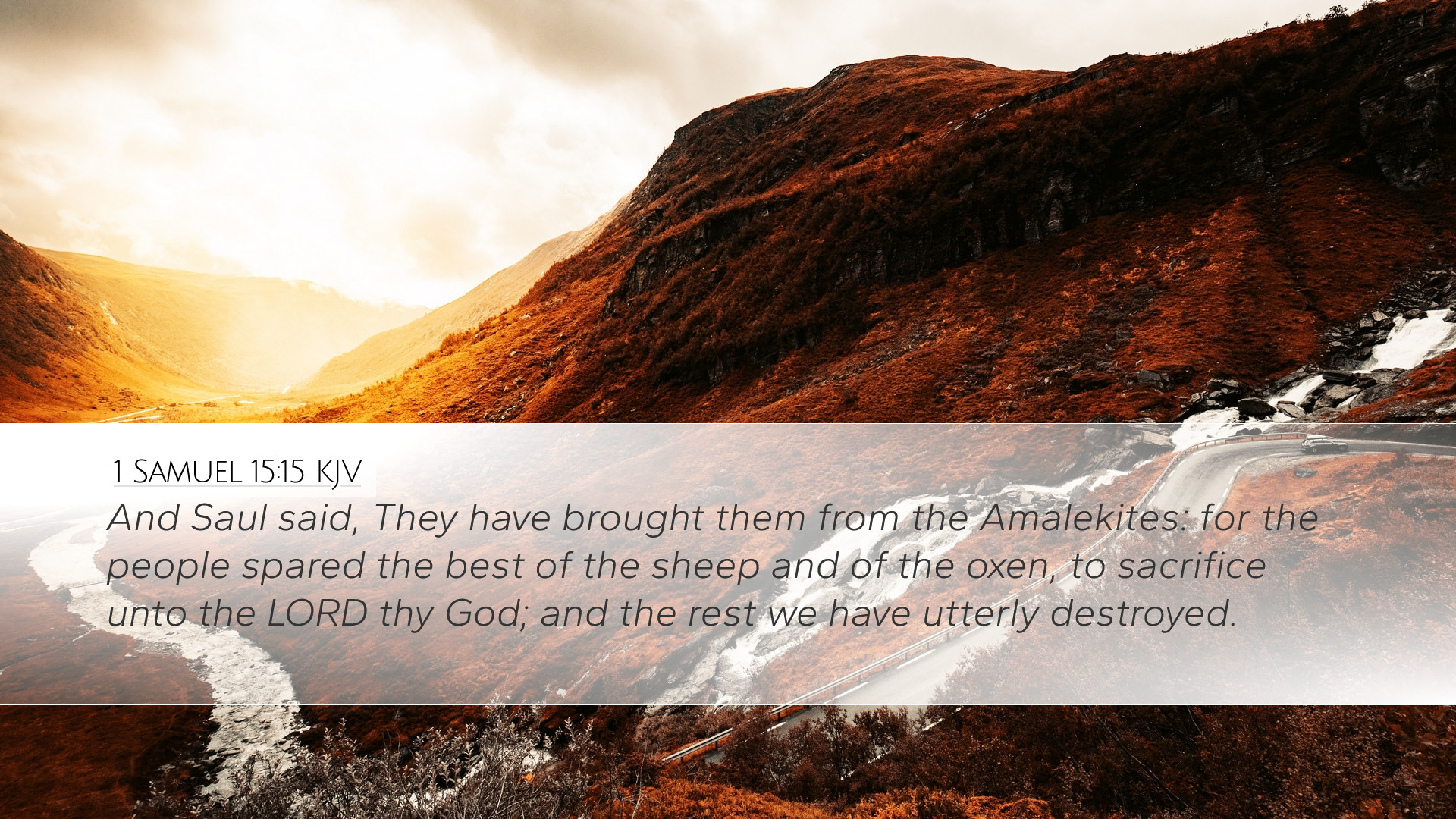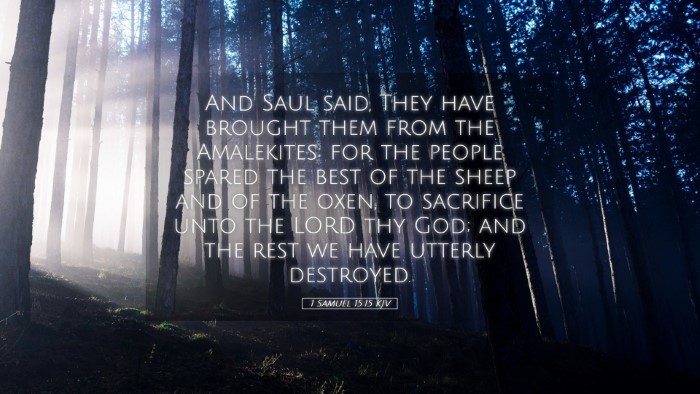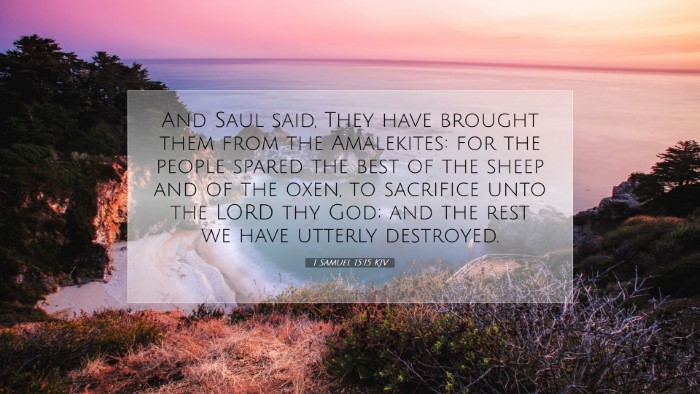Commentary on 1 Samuel 15:15
Verse: “And Saul said, They have brought them from the Amalekites: for the people spared the best of the sheep and of the oxen, to sacrifice unto the Lord thy God; and the rest we have utterly destroyed.”
Introduction
This verse is part of the narrative where King Saul justifies his disobedience to God's command through the prophet Samuel regarding the destruction of the Amalekites. The statements made by Saul reflect a common human tendency to rationalize disobedience and misinterpret divine intent.
Contextual Background
The command for Israel to utterly destroy the Amalekites was given in Exodus 17:14 and reaffirmed in Deuteronomy 25:17-19. This genocidal directive was rooted in the Amalekite’s attack on Israel when they were vulnerable, demonstrating God's judgment against their persistent enmity and sinfulness.
Insights from Matthew Henry
Matthew Henry in his commentary highlights Saul's attempts to justify his actions. He notes:
- Rationalization: Saul claimed the best of the animals were spared with righteous intent—a sacrifice to the Lord. This reflects a distressing trend where people dress disobedience in pious language.
- Leadership Responsibility: Henry stresses that Saul’s failure to obey God's command demonstrates a critical failure in leadership, where pleasing the people takes precedence over God’s commands.
- God’s Expectations: The core issue is that God desires obedience over sacrifice (refer to 1 Samuel 15:22), indicating that internal integrity supersedes external religious rituals.
Insights from Albert Barnes
Albert Barnes offers a deep dive into Saul's defense, emphasizing the following points:
- Collective Blame: Saul’s mention of “the people” illustrates a common leadership flaw. Rather than accepting personal responsibility, he shifts blame, which undermines accountability.
- Misguided Worship: Barnes cautions against the belief that sacrificial intentions can compensate for disobedience. True worship must align with God’s specific directions.
- Cultural Influence: The influence of the people around Saul made him susceptible to compromise. This serves as a reminder to leaders that peer pressure can lead one away from divine obedience.
Insights from Adam Clarke
Adam Clarke provides additional layers of insight, particularly regarding the mindset behind Saul’s words:
- Theological Misunderstanding: Clarke indicates that Saul’s response reflects a distortion of sacrificial theology. He misinterprets God’s requirements, believing that God would delight in offerings over obedience.
- Public Perception: There is a significant concern surrounding how leaders navigate public perception. Clarke suggests that Saul’s actions were an attempt to maintain favor with the tribes of Israel, indicating a troubling prioritization of human approval over divine will.
- Heart vs. Ritual: Clarke draws attention to the importance of the heart’s posture. God desires heartfelt obedience rather than mere ritualistic sacrifice.
Theological Implications
The implications of Saul's statement in 1 Samuel 15:15 stretch far into theological reflections about obedience, leadership, and worship:
- Obedience as Worship: The act of improper sacrifice reflects a critical misunderstanding of what it means to worship God. Worship is grounded in obedience.
- Human Responsibility: Saul's actions highlight the necessity for leaders to embody accountability and integrity. The failures of leadership can have collective repercussions on a community's spiritual standing.
- God's Judgment: This story serves as a sobering reminder that there are consequences for disobedience against God’s commands, as Saul had to face the prophetic judgment of being rejected as king.
Conclusion
Status as king did not exempt Saul from accountability. His rationalization of wrongdoing underlines a crucial lesson for all spiritual leaders: that one cannot use good intentions or the guise of worship to cover disobedience to God. This narrative encourages us to reflect deeply on our motivations, prioritize obedience, and ensure our worship aligns with God’s will.


